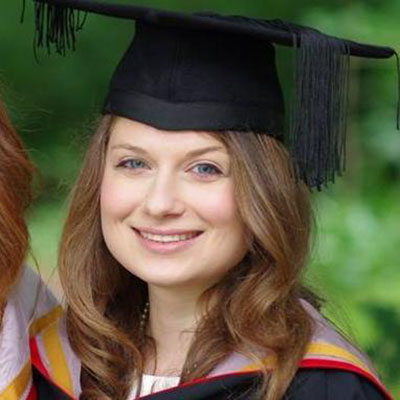Working in the Cabinet Office’s Open Innovation Team

As a final year PhD student, I started to consider what to do after submitting my thesis. I decided it would be valuable to gain some experience outside of academia through working in policy. I put my PhD studies on hold to complete a secondment working as a policy adviser in the Cabinet Office’s Open Innovation Team. I wanted to see how the skills I had acquired from my doctoral training could be applied in a very different context, working as part of a highly dynamic team at the centre of Whitehall.
The award-winning Open Innovation Team helps Whitehall departments generate analysis and ideas by deepening collaborations between officials and academics. The dynamic team works with a wide range of departments on a vast number of different priority projects including mental health, artificial intelligence and digital transformation. I joined the team as a generalist working with five full time civil servants and seven other PhD students also completing secondments.
During the first half of my placement I spent most of my time working with teams in Defra supporting the development of collaborations between academics and policy specialists. I also wrote an evidence paper for Defra’s chief scientific adviser’s office. This gave me a fantastic opportunity to network with officials in Defra and apply my environmental science background to a policy context.
During the second half of my placement I worked as part of a cross governmental working group that focussed on follow up work from the race disparity audit. At the beginning of the project, I was responsible for developing an initial evidence base. I wrote a systematic literature review identifying the drivers responsible for ethnic disparities in the transitions from education to the labour market for young people. Throughout the project I was able to work closely with different departments and engage in interesting discussions with leading academics to help inform the project. At the end, I presented my findings to the working group which, although was daunting, proved to be a challenging and valuable experience. Although this project was far from my environmental science specialism, it was really positive to see how skills from my scientific background, particularly evidence synthesis and critical analysis, could be used in a social science policy context.
The secondment gave me a fantastic opportunity to develop my skill set and gain valuable experience working in government. It propelled me to successfully apply for a job in Defra and has provided me with some useful skills for working as a scientific officer in Defra following the completion of my thesis.
